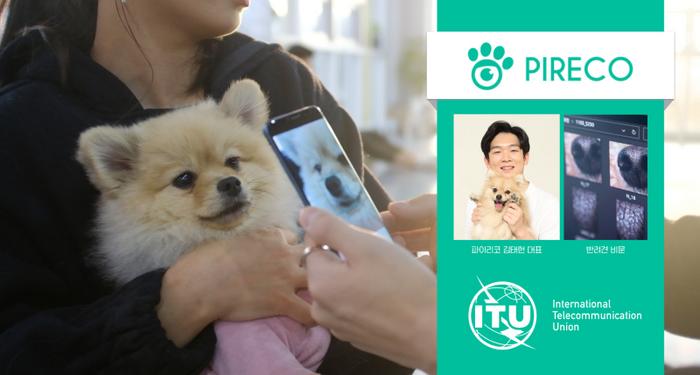Pireco Co., Ltd., a student-led venture company of UNIST, has accomplished a remarkable feat in establishing an international standard for their multi-biometrics identification solution designed for companion animals. This groundbreaking solution simplifies the process of accurately identifying and registering companion animals by simply scanning the distinctive patterns of ridges and creases on their noses using smartphones. The advent of this pioneering technology sets the stage for global registration and identification of companion animals.

Credit: UNIST
Pireco Co., Ltd., a student-led venture company of UNIST, has accomplished a remarkable feat in establishing an international standard for their multi-biometrics identification solution designed for companion animals. This groundbreaking solution simplifies the process of accurately identifying and registering companion animals by simply scanning the distinctive patterns of ridges and creases on their noses using smartphones. The advent of this pioneering technology sets the stage for global registration and identification of companion animals.
On September 8, UNIST made an official announcement regarding the consent of the “Multi-biometric Identification and Registration Technology Standards for Companion Animals” developed by Pireco. This consent was granted during a meeting held at KINTEX in Ilsan by the International Telecommunication Union (ITU), the United Nations specialized agency for information and communication technologies. Following a four-week period to gather opinions from ITU members, the consented standard will be officially approved as an ITU international standard. Since April 2020, Pireco has worked in collaboration with Dr. Jae-Sung Kim of the Korea Internet & Security Agency (KISA) to develop international standards for their multi-biometrics identification solution, focusing on nose patterns.
The current Enforcement of Decree of Animal Protection Act only acknowledges the use of an RFID-based system for registering companion and does not consider nose print-based registration as a valid method. However, as international standards for assessing the reliability of technology have been established, there is an anticipation that the revision of the current law to include nose print-based registration will gain traction. Presently, the registration process for companion dogs involves the insertion of a microchip, ensuring lifelong identification. Nevertheless, with the amendment of the legislation, the pet registration process can be simplified by employing nose print-based registration as an alternative approach. This modification is projected to streamline the process and facilitate an enhancement in the current low pet registration rate, which currently stands at approximately 50%. The low registration rate has been identified as a significant impediment to the advancement of pet insurance, a matter of utmost national importance.
Tae-Heon Kim, the CEO of Pireco, has expressed his utmost satisfaction in spearheading the establishment of the world’s first international standard for pet identification technology. He emphasized the company’s commitment to actively promoting global expansion, by saying “We are actively promoting overseas expansion to ensure that technologically advanced countries in the pet industry can readily adopt Korean innovations.”
Established in 2018, Pireco specializes in providing registration solutions for companion animals through the utilization of unique biometric traits, such as iris and nose prints. With the adoption of this international standard, Pireco has gained a significant advantage in securing intellectual property rights related to this cutting-edge technology. In the latter half of this year, the company plans to initiate a pilot project for issuing dog ID cards, leveraging the regulatory sandbox demonstration special case designation.




